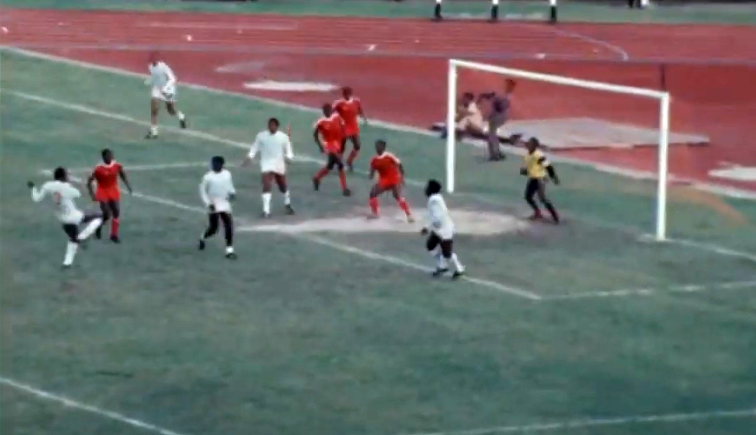Injuries from the Biafran war were still fresh, and suffering was rife all over the east of Nigeria. The Eastern people were wounded, not just physically and economically, but psychologically wounded, too.
The Nigerian head of state, Gen. Yakubu Gowon, gave a popular speech to mark the end of the war between the secessionist Eastern part of Nigeria and the rest of the country, famously known as the “No Victor No Vanquished” speech. The only problem was that there was a victor and there were those that were vanquished and each party knew where they stood. In order to more quickly reintegrate the vanquished-not-vanquished Eastern Nigerians into the rest of the country, a representative soccer club was formed. This soccer club was to take part in national tournaments, so that maybe, just through participating, the Igbo people of the East could feel like part of the nation again; the rest of Nigeria saw the Easterners as broken, and did not expect them to have what it took to win anything, so soon after their defeat.
Being a proud people, the Igbo loss in the gruesome war had cut deep. So when the first game was scheduled, everyone knew that a lot was riding on its outcome. Their lives may not have depended on it, as it had on the tides of the war, but their pride and the pride of their people did. And what was life to the Igbo of Eastern Nigeria if they could not live it with pride?
Before the game, the unspoken thought was that while Nigeria might have won the war, due to a disproportionate amount of military aid received from abroad, they were not to come to the heart of Igbo land and prevail in a contest of wits or skill. If they tried, they would leave in shame.
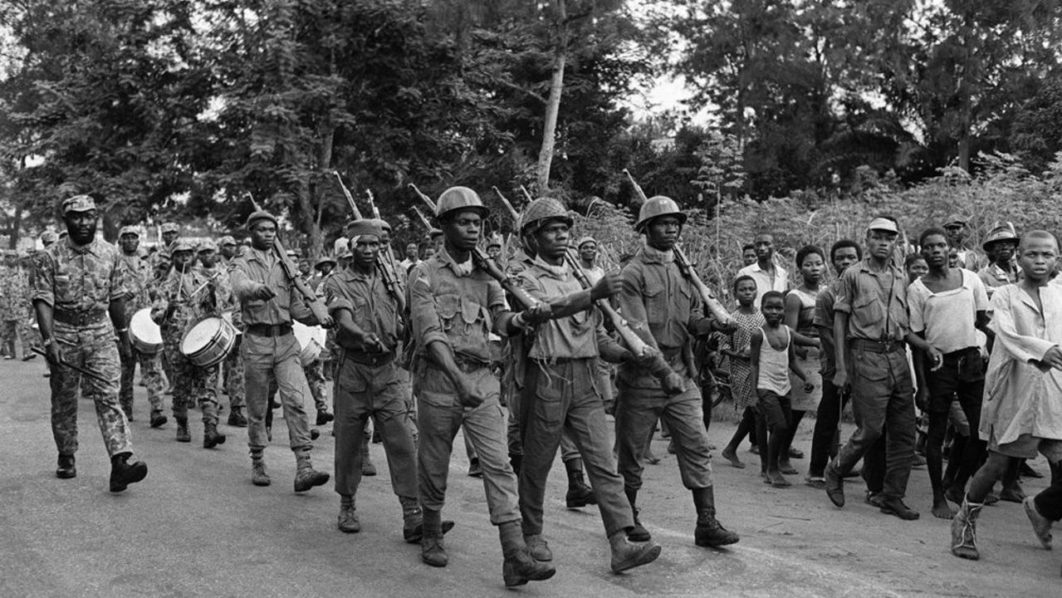
All around Eastern Nigeria, reminders of the war were everywhere. The burnt houses had not been rebuilt, unemployment and hunger ate up the people who had survived the war, and businesses still crouched on their knees. Streets were lined with children with thin limbs and bloated stomachs, all suffering the epidemic Kwashiorkor. Memories of the people who never made it back and of those who had died followed the living around every turn. Nearly every street had once been home to a friend who had died in the war, gone missing, or lost his senses to the violence of it. The maimed, the mentally disturbed, and the displaced filled the streets.
On the radio, Gowon’s speech was played over and over again. Messages about the indivisibility and oneness of the country were repeated and the Easterners were encouraged to go back to their work and businesses, as if they had an alternative. If they didn’t, what was left of the population would be snuffed out by hunger. Going back, however, was not easy. There was no money left to run businesses. The same government that broadcast a message of oneness on repeat over the radio freely allowed the banks to confiscate money held in accounts bearing Eastern names. Properties owned by Easterners in other parts of Nigeria were seized as war loot and the government looked the other way. Employment was denied to Easterners in private establishments, and in the following years, public institutions began retiring them early.
On the radio, the war had ended and there was no victor and no vanquished. But on the streets, an economic war raged on, and the vanquished of the physical war were at the mercy of its victors. It was in this environment that the national soccer team of the Nigerian Army arrived to play against the Eastern boys of Enugu Black Rocks, the team later known as Rangers International FC.
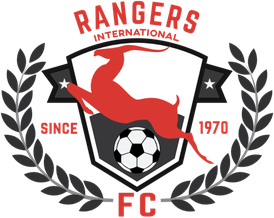
Early in the game, twenty-five-year-old Dominic Nwobodo suffered a wound to the head. Many years later, he told Vanguard magazine: “I was stretchered out, had the cut stitched, bandaged and demanded to go in and complete the match.”
When he returned to the pitch, no one could believe it. With his bleeding head swathed in a turban-like bandage, commentators immediately dubbed him ”Alhaji,” a nickname that stuck for the rest of his career. The coach did not want him back on the pitch. No one did, they thought it was not safe and everyone argued against it but in his stubbornness, he repeatedly insisted, I’m fine, I’m fine, until they let him back in.
And boy was he fine! Standing above six foot five and having the speed of an electric train, you could not miss this player who delivered shots on target with a bloodied white wrapping around his head. He and the decisive winning goal he scored were the finest things in that game. The roar from the over-packed Nnamdi Azikiwe Stadium shook the hills over the whole of Enugu. The people did not know they still had such screams left in their lungs.
By the time the game ended, everyone knew the name Alhaji Nwobodo.
Many of the guys on Nwobodo’s team had served in the Biafran Army during the war, in one capacity or another. Nwobodo himself had served as a lieutenant commander in Afikpo; his brother Christopher never returned from the war.
For the players in the Nigerian Army Team, the Easterners were the bloody secessionist rebels who needed still to learn their place. If they were going to be back in Nigeria and participate in the games, they needed always to remember that they had lost the war. They came to crush a conquered people. But the Eastern boys had a different motivation.
To them, it was more than just soccer. It was a war for their lives to live proudly as a people. It was a war to avenge all they had lost. The team was only a few months old but it was obvious that there was a solidarity burning in the chests of Johnny Wheeler Nwosu, and Ernest Ufele who held up the defense.
Rangers FC pressed until their opponents gave in, and from the beginning of the club there was always Alhaji Nwobodo, six feet five and ready to disorient the best of keepers. He was there when Black Rocks were renamed Rangers FC. He drew the logo the club uses to date. His shots produced the goals that gave the club its spine.
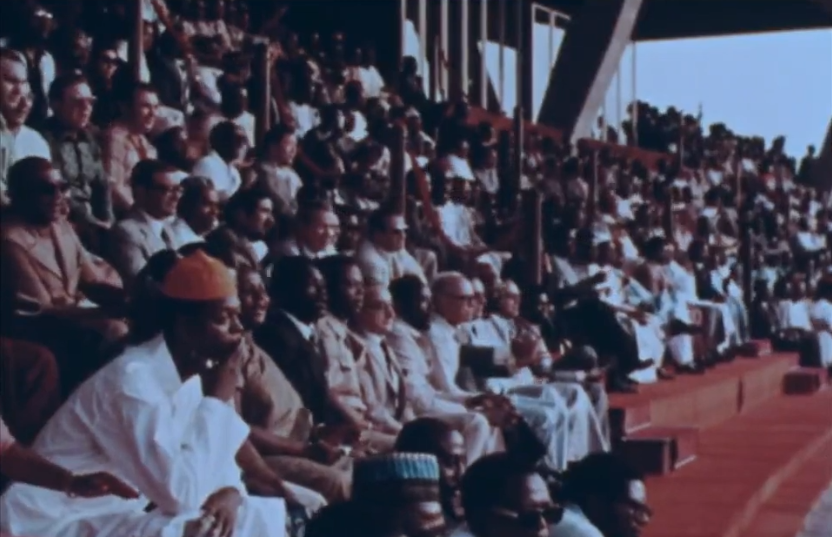
Showing up for soccer practice took the steam off Nwobodo. It was the only time he ever felt like the war was really over. Competing, however, did not feel as airy. If it was against a team from either the western parts of Nigeria like the IICC or Kano Pillars from the northern part, it was like being plunged back into the war. Stanley Okoronkwo, the light-skinned dribbler known as Stainless for always avoiding body contact with opponents, reflected years later that a typical game between Rangers FC and IICC was like war, because of tribal hegemony.
The mid-seventies was the golden age of Rangers FC. In addition to trampling Bayern Munich, then fresh off a UEFA champions league win, in an uncompleted game in ’74, Rangers were the defending champions of the coveted Challenge Cup for three years in a row. At home in Nigeria, tickets sold out and stadia were packed full beyond capacity, Okoronkwo told me. Streets came alive when there was a Rangers game, with flooding blasts of trumpets and drums as fans gathered, dressed in matching club shawls, shirts and knitted hats. The fans traveled wherever there was a game, and they could narrate every move made on the pitch by any of the eleven players.
It was a great time to be a local star. The government did not pay much in those days, and international exposure was almost nonexistent, but the thrill of the game and the loyal fans made it all worth it.
At that time Nwobodo began charting his path of becoming a coach. He took coaching courses while still a player, beginning in 1973 with a course from the Nigeria Football Association. He followed it up with a diploma in fine arts from Sunderland the next year, plus another set of coaching courses and certification from the German-Football-Federation received through the Fussball-Verband Mittelrhein e.V. By 1979, when he stopped playing soccer professionally, he had earned his first FIFA certification. Between then and the late 2000s, when he retired from coaching, he had gathered numerous coaching certificates from many different academies, started a short-lived club, and written a book about soccer in Africa: Afroball.
Nwobodo’s first club was called Vasco Dagama; he would go on to coach Enyimba FC, followed by Port Harcourt Red Devils, Abakaliki White Angels, Makwada FC in Adamawa, and his very own Rangers FC, where he finally hung his boots. In between being a soccer player, coaching, and being a husband and father, he pursued and earned a degree in business administration, started and ran a few businesses, and wrote his book.
Years later I got to know Nwobodo, some former Rangers and some of the old superfans who have become family to the club and still hang out with the players. Once, out drinking with this group, one of these fans—a man with greying hair, and black spots on his face—said to me, in between large bites of fried chicken, “If they were only two goals scored by Rangers the whole time Alhaji Nwobodo played, he scored one, the other nine players scored the other one. Look at them, I am not saying it behind their backs.”
His voice was low enough to be an aside conversation in a crowd, but high enough for all to hear. Nobody disagreed with him.
The lack of concern for state heroes and seniors by the Nigerian government is so strong that all you need to taste it in the air is to be around Nwobodo or his mates. You will find men who gave their all and got nothing in return. If you took away the personal businesses and investments Nwobodo made as a young man, and the goodwill of his doting children, and left him to the care of the same country he helped reunite with victories, he would die of penury and state neglect. For the heroes of earlier days, pensions, meager as they are, come late and are sometimes tampered with. Healthcare is nonexistent. Recognition deserved by people who honored the state never arrives.
What you may see are old patriots who gather every other day to have a few drinks and relive stories of younger days.
In 2020, just before the lockdown, Nwobodo underwent surgery to remove a benign prostate tumor. There in the Army Hospital at the 82 Division Barracks, you had old men his age and men a little younger peer into his face and ask, aren’t you Alhaji Nwobodo that played for Rangers? His answer is always the same, raucous laughter and a joyful reunion with a stranger who was also a brother. Wrinkled faces and deep coarse voices narrating how difficult a game had been for one person to win, and the lengths to which the other had gone to make sure he watched it.
To this day, nothing unites Nigeria like soccer. The country is home to over two hundred ethnic groups disagreeing in very different languages. Soccer was the only thing they could share, and agree on, after the bloody Nigerian-Biafran war. And Rangers FC, with the help of the serial goal scorer Nwobodo, saw that this discussion was one of pride for an injured people.
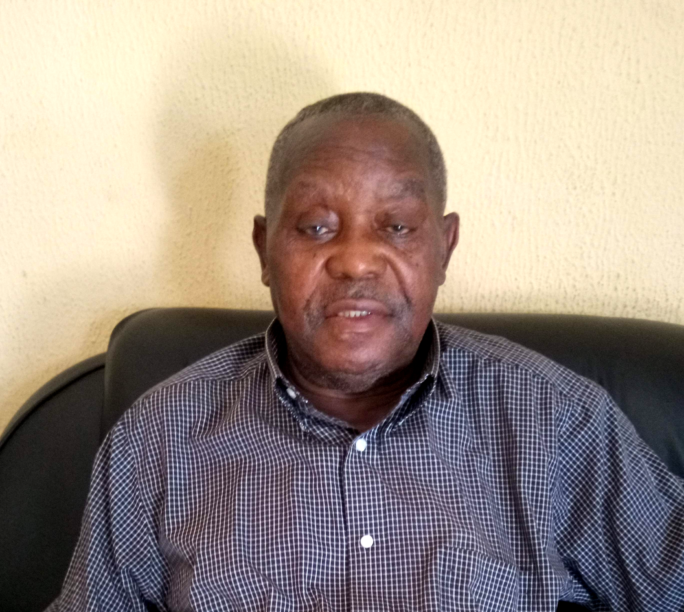
If you walk through the suburban Trans-Ekulu neighborhood of Enugu state when the sun has turned orange and giving off no heat, sinking behind one of the far-off hills, you might run into Nwobodo on his evening stroll. He still stands big, sturdier than the lanky youth that jetted through pitches while filling his opponents’ nets with goals.

